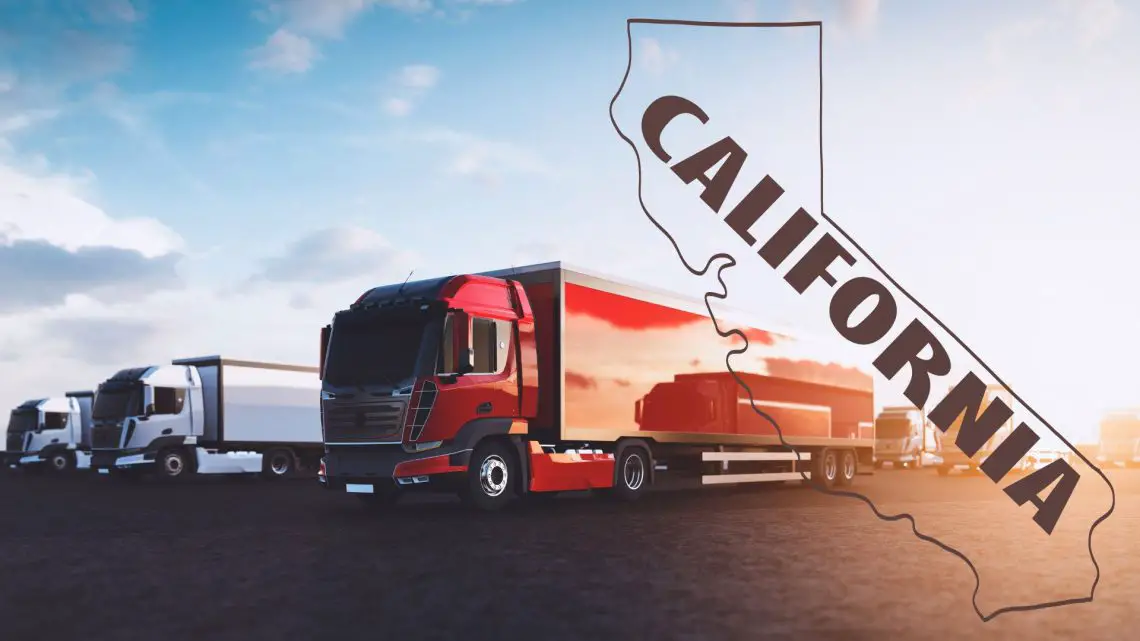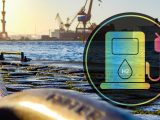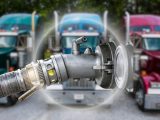
Showdown in California: Trucking Titans Take on CARB’s Clean Fleet Mandates
October 11, 2024 0 By John MaxTrucking Association Clashes with CARB Over ZEV Mandates
The California Air Resources Board (CARB) is facing legal challenges from the NTEA – The Work Truck Association and the Specialty Equipment Market Association (SEMA) over its Advanced Clean Fleets (ACF) regulations. These organizations have filed a lawsuit to prevent the implementation of electric vehicle mandates, arguing that the regulations exceed CARB’s authority and impose undue burdens on the trucking industry.
CARB’s New Regulations – Clean Fleet Mandates
CARB’s ACF regulations are part of California’s broader strategy to transition to zero-emission vehicles and reduce tailpipe emissions significantly. The regulations mandate that fleets well-suited for electrification must phase in Zero-Emission Vehicles (ZEVs). From 2036 onwards, only ZEV trucks will be manufactured for sale in California. Significant deadlines include:
- 2024: Fleets must begin purchasing only ZEVs.
- January 1, 2025: Internal combustion engine (ICE) vehicles must be removed at the end of their useful life.
- 2035: All drayage trucks must be zero-emissions.
- 2036: Only ZEV medium- and heavy-duty trucks can be manufactured.
Trucking Industry Concerns
Many in the trucking industry have expressed concerns about the financial and operational impacts of these regulations. The lawsuit filed by NTEA and SEMA highlights the potential economic strain on fleet operators and vehicle manufacturers required to adopt costly zero-emission technologies. The industry argues that these mandates could stifle innovation by focusing solely on electric solutions, disregarding other potential technologies that might achieve similar environmental benefits.
The trucking industry’s opposition is grounded in the historical reliance on diesel engines and the significant investments already made in existing technologies. There’s a fear that the rapid transition could disrupt supply chains and increase costs for businesses that are not yet equipped to adapt to new technologies.
Impact on FCEV and EV Truck Growth
The lawsuit and ongoing legal battles could slow down the growth of Fuel Cell Electric Vehicles (FCEVs) and Electric Vehicles (EVs) in the truck sector. If the courts rule against CARB, it could set a precedent that restricts similar regulations in other states, potentially affecting national strategies for emission reductions.
However, if CARB prevails, the mandates could accelerate the development and adoption of FCEVs and EVs. This shift would likely prompt increased investment in infrastructure and technology, fostering innovation in the zero-emission vehicle market.
Hydrogen Conversion Kits as a Solution
One potential solution for fleet owners facing financial and operational challenges is the use of hydrogen conversion kits. These kits can convert existing diesel trucks to run on hydrogen, offering a potentially cost-effective way to meet CARB’s zero-emission standards without purchasing new vehicles.
Hydrogen conversion could provide a viable compliance pathway under CARB regulations, as it aligns with the goal of reducing emissions. Conversion kits could help fleet owners leverage existing assets, reduce upfront costs, and transition more smoothly to sustainable operations. However, the feasibility of this approach depends on the development of hydrogen infrastructure and the regulatory acceptance of such conversions.
Companies Offering Hydrogen Truck Conversion Kits
Several companies are leading the way in converting diesel trucks to hydrogen-powered vehicles. These include Toyota, CMB.TECH (in partnership with Ford Trucks), Hydra Energy, ULEMCo, and Cummins, each offering unique solutions to meet the growing demand for cleaner transportation options.
Toyota: Toyota has made significant strides with their hydrogen fuel cell conversion kit for heavy-duty trucks, which has received approval from the California Air Resources Board. This kit allows for the replacement of traditional diesel engines, aligning with the push for zero-emission solutions.
CMB.TECH: In collaboration with Ford Trucks, CMB.TECH provides dual-fuel conversion services. Their technology enables trucks to operate using both diesel and hydrogen, offering flexibility and an extended range for fleet operators.
Hydra Energy: Specializing in hydrogen conversions for heavy-duty vehicles, Hydra Energy targets regional fleets with shorter routes. Their focus is on making hydrogen a viable option for areas where long-distance travel is less prevalent.
ULEMCo: Known for their expertise in hydrogen-powered transport solutions, ULEMCo offers conversion technology that integrates hydrogen fuel into commercial vehicles. Their systems are designed to enhance sustainability in fleet operations.
Cummins: Cummins is developing hydrogen combustion engines that can be retrofitted into existing truck platforms. This innovation provides a potential pathway for transitioning from diesel without the need to replace entire fleets immediately, making it a cost-effective alternative for many operators.
To ensure a diesel truck converted to hydrogen is acceptable under CARB’s regulations, several critical requirements must be met. The conversion system must be certified by CARB, confirming compliance with emissions, warranty, and durability standards. This certification involves obtaining an Executive Order from CARB for the conversion kit manufacturer. Additionally, the hydrogen fuel used must adhere to the SAE International J2719 standard for quality. Meeting these criteria allows the vehicle to potentially qualify as a Zero Emission Vehicle (ZEV) or near-ZEV, ensuring it produces no harmful emissions during operation.
Beyond meeting technical standards, fleet owners might find the process more accessible if clearer guidelines were provided. For instance, qualifying for the Zero Emission Assurance Project (ZAP) could offer financial incentives through rebates for certified ZEVs and near-ZEVs, making conversion an economically viable option. However, without well-defined guidelines, fleet owners may struggle to assess the feasibility and benefits of converting diesel fleets to hydrogen. Establishing straightforward and comprehensive guidance would significantly aid in making informed decisions about transitioning to more sustainable vehicle options.
Conclusion
The lawsuit filed by NTEA and SEMA underscores the complexities and challenges associated with transitioning to a zero-emission future. While CARB’s ACF regulations aim to position California as a leader in clean transportation, the concerns raised by the trucking industry highlight the need for balanced solutions that consider technological diversity and economic realities. The outcome of this legal battle will have significant implications for the future of vehicle emissions standards and the adoption of alternative fuel technologies nationwide.
About The Author
John Max is an experienced sound engineer with a bachelor’s degree from UCLA. With over 25 years of experience in the entertainment industry, John has also worked as a machinist, producing parts for cameras. Apart from his professional achievements, John is passionate about classic cars, owning a dazzling 1976 Porsche 911. While he drives a Toyota Prius on a regular day, John is excited about getting his hands on his first hydrogen car soon. John has been an avid writer for Hydrogen Fuel News for 17 years, contributing to the team as they collectively investigate and learn about the growth and technology of hydrogen fuel. At Hydrogen Fuel News, John is part of a great team that shares a common goal of exploring and investigating the world of hydrogen fuel.



 With over 15 years of reporting hydrogen news, we are your premier source for the latest updates and insights in hydrogen and renewable energy.
With over 15 years of reporting hydrogen news, we are your premier source for the latest updates and insights in hydrogen and renewable energy.